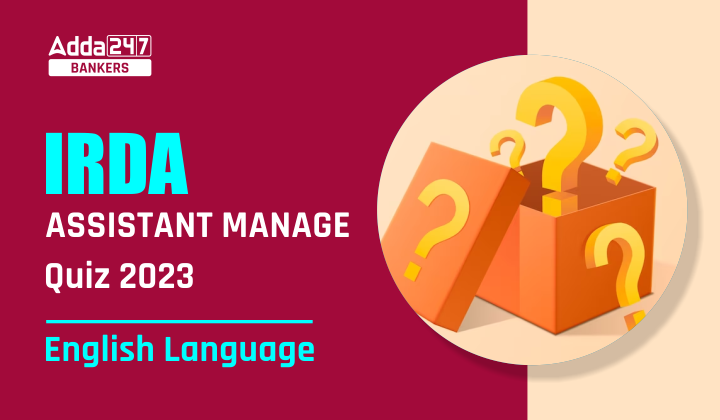Directions (1-5): Read each sentence to find out whether there is any grammatical or idiomatic error in it. The error, if any, will be in one part of the sentence. The number of that part is the answer. If there is ‘No error’, the answer is (e). (Ignore errors of punctuation, if any.)
Q1. Banks are on the verge (A)/ of facing a formidable challenge (B)/ of losing over fifty percent of (C)/ their employees due to retirement. (D)/ No error (E)
(a)A
(b)B
(c) C
(d) D
(e) E
Q2. Most of the Indian populations still lives (A)/ in its villages and thus the contribution of (B)/ agriculture to Indian economy (C)/ becomes very important. (D)/ No Error (E)
(a)A
(b)B
(c) C
(d) D
(e) E
Q3. The movement, which aims to (A)/ raise awareness about climate change, hopes (B)/ to bring people together to think about (C)/ what they can do for reduce harmful pollution. (D)/ No error (E)
(a)A
(b)B
(c) C
(d) D
(e) E
Q4. Her doctor was (A)/ annoyed because she (B)/ ignore her health (C)/ even after being hospitalized twice. (D)/ No Error (E)
(a)A
(b)B
(c) C
(d) D
(e) E
Q5. Raghav was worry (A)/ about telling his parents (B)/ that he wanted to move out (C)/ and live independently. (D)/ No Error (E)
(a)A
(b)B
(c) C
(d) D
(e) E
Directions (6-10): Read each of the following sentences to find out if there is any grammatical error in it. The error, if any, will be in one part of the sentence. The number (A, B, C or D) of this part is your answer. If there is no error in the statement, then mark option (e) as your answer choice.
Q6. Sensible shoes and rainproof (A)/clothing are recommended, but (B)/we were very luckier enough (C)/ to have all fine weather (D)/ No Error (E)
(a) A
(b) B
(c) C
(d) D
(e) E
Q7. Don’t include your (A)/telephone number or home (B)/address as part of (C)/your sign on e-mails (D)/ No Error (E)
(a) A
(b) B
(c) C
(d) D
(e) E
Q8. The worst humiliation of contemporary (A)/religious life is the abjectness of needing (B)/God and a community quiet badly (C)/enough even to sit through this(D)/ No Error (E)
(a) A
(b) B
(c) C
(d) D
(e) E
Q9. Aristotle certainly made research (A)/ on the natural history of Lesbos, (B)/and the surrounding (C)/seas and neighboring areas(D)/ No Error (E)
(a) A
(b) B
(c) C
(d) D
(e) E
Q10. For some the confident of (A)/ adolescence is replaced with questions (B)/ and doubt, marking (C)/the transition to adulthood (D)/ No Error (E)
(a) A
(b) B
(c) C
(d) D
(e) E
Solutions
S1. Ans. (c)
Sol. Use ‘above’ in place of ‘over’ because to tell ‘level’, ‘above’ is used whereas ‘over’ implies movement from one place to another. Ex. Inflation is above 6%. Temperatures have been above average.
S2. Ans.(a)
Sol. Replace ‘lives’ with ‘live’ because ‘Most of the Indian populations’ is a plural subject which should be followed by plural verb.
S3. Ans.(d)
Sol. Use ‘for reducing’ in place of ‘for reduce’ because the verb coming after preposition ‘for’ should always be in fourth form of the verb.
S4. Ans.(c)
Sol. ‘Ignore’ will be replaced by ‘ignored’ as sentence structure is in past tense.
S5. Ans.(a)
Sol. ‘worried’ will come in place of ‘worry’ as sentence structure is in past tense.
S6. Ans. (c)
Sol. Use of ‘very’ is superfluous here. Also, “Positive degree + Adjective” is used such as:
Tall enough, Rich enough. Hence, “very luckier enough’ is wrong here.
S7. Ans. (d)
Sol. Instead of ‘sign’, ‘signature’ will be used because ‘sign’ is a verb and ‘signature’ is a noun.
S8. Ans. (c)
Sol. Instead of ‘quiet’, quite will be used because ‘quiet’ is an adjective which means ‘silent’ while ‘quite’ is an adverb which means ‘slightly or relatively’. And quality of ‘badly’ will be defined by an adverb, not an adjective.
S9. Ans. (a)
Sol. Instead of ‘made research’, it will be ‘did research’ as we ‘do research’ and not ‘make research’.
S10. Ans. (a)
Sol. Instead of ‘confident’ it will be ‘confidence’. Because ‘confident’ is an adjective and ‘confidence’ is a noun.





 English Language Quiz For Bank Foundatio...
English Language Quiz For Bank Foundatio...
 English Language Quiz For Bank Mains Exa...
English Language Quiz For Bank Mains Exa...





